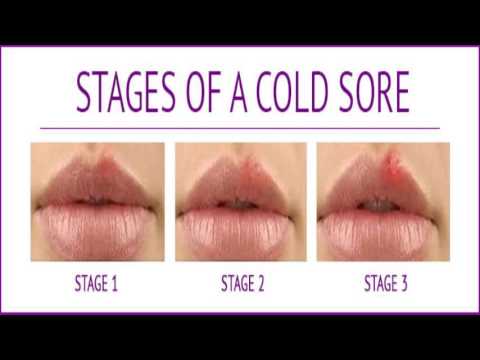Cold Sore And Pregnancy

Contents:
- Cold Sore During Pregnancy
- What Do We Know About Cold Sores?
- What is The Hazard By the Herpes Virus at Pregnancy?
- What are the Treatment Options to Manage Herpes During Pregnancy
Cold Sore During Pregnancy
Cold sores, sometimes called fever blisters, are a kind of disease many have not only heard of, but also know from personal experience. To date, 90 per cent of the population is carriers of cold sores. Cold sores may remain in the human body up to 5, 10, or even 25 years, without showing up. The human immunity "suppresses" any possible manifestations so the virus stays asleep while the time is not right. The time comes when the body's defenses become weak.
The treatments are quite diverse used to primarily suppress the symptoms of the disease, as well as to restore the immunity. There is one "but": the disease is unreal to cure; you can only "put it to sleep", until the immune system gets weaker again. Unfortunately, pregnancy – one of those periods when the disease recovers from the suspended animation to progress back again.
What Do We Know About Cold Sores?
Every second person is a carrier of the virus.
- The cold sores virus usually lurks in the peripheral nervous system within the spinal area.
- Not all cold sores are the same. We mean there are two types of herpes – the first and the second type.
- Herpes occurs as rashes in the form of bubbles; the most popular area is the lip or nose (for type 1 virus) or genitals (the case of type 2).
- Herpes is transmitted in 4 ways. They are: airborne, sexual, contact (kissing, shaking hands, using common everyday household items) and birth (from the mother to the child at gestation and birth).
- The carrier may have the herpes simplex virus in the saliva, blood, lymph, tears, urine, semen, and cerebrospinal fluid.
- The virus penetrates the human DNA to rewrite the information data and start multiplying.
- Herpes may contribute to the cervical and corpus uterine cancers.
What is the Hazard By the Herpes Virus at Pregnancy?

As we said, herpes is often occurs during pregnancy due to a decrease in immunity. The latter is indispensable for a successful incubation, which to some extent is perceived by the body as having an alien object. Therefore, the nature arranged for weakening the body for the 9 months to avoid its getting rid of the "stranger." This phenomenon is absolutely necessary for the pregnancy , which can not be said about cold sores.
It is very dangerous for a woman to catch the herpes while being pregnant. In this case, there is a risk to get the virus passing through the placenta into the body of the child. However, the infection may not occur. Getting infected in the first trimester of pregnancy significantly increases the risk of miscarriage. If this does not occur, the virus can "work" in a different way causing various fetal malformations: lesion of the central nervous system, serious congenital brain defects, visual impairment, hearing impairment and various deviations in physical development. Infection in the third trimester may result in a brain lesion or death of the fetus.
The women who had herpes or were viral carriers before pregnancy have more comforting forecasts. Such women have maternal antibodies to keep their babies protected.
If shortly before childbirth exacerbation of genital herpes occurs the most widely used method of delivery is a c-section. This is due to the high risk of the child getting infected while passing through the infected birth canal. Some specialists practise the natural delivery. For this purpose, they use drugs to neutralize the virus. Such as acyclovir, for instance.
What Are the Treatment Options to Manage Herpes During Pregnancy
If prior to the pregnancy you notice herpes symptoms, you should inform your obstetrician-gynecologist. If the disease is aggravated during gestation, do not hesitate to visit the doctor: the sooner the measures are taken, the greater is the chance of success.
As we have already pointed out, there is no medication against the virus to ensure a full recovery. The doctor can influence either the virus, or immunity. Treating the pregnant is complicated by the fact that over 9 months you can not apply all known drugs.
Panavir is the main ally of the pregnant woman in fighting the herpes that can be applied both internally and externally. Acyclovir antiherpethetical ointment is another means, but use it with caution. It is applied on rashes 5 times a day during a week. In addition, oxolinum, alpisarin, tebrophen, tetracycline or erythromycin ointments may be used as well.
Sometimes the doctor may recommend to lubricate the herpes rash with interferon solution and vitamin E, which promotes a faster healing of sores. A diagnosed failure of immunity is treated with immunoglobulins.
As for the folk remedies you may use fir needle oil to lubricate the rash areas, and chamomile cream or marigold ointment to mitigate the sores It is recommended taking plenty of hot beverages such as tea with honey or viburnum fruits.
The instructions to certain drugs indicate they cannot be used in pregnancy. But the woman should trust her doctor, if he prescribes one of these drugs, and realize that dealing with an untreated infection is much more dangerous than taking "unauthorized" medications.